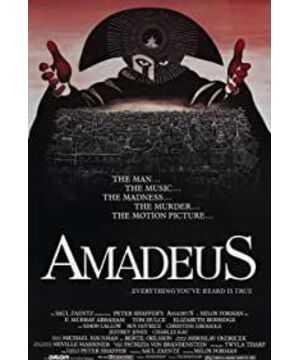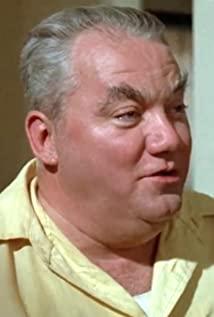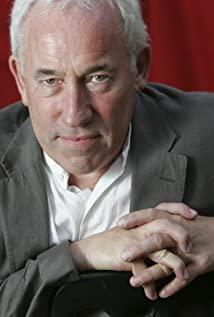God ah you either give me the opportunity Why wholehearted enthusiasm and ambition
with one voice, cry from both time and space. The former is the court musician Salieri's
questioning line in the movie "Mozart", and the latter is my complaint in ordinary life. We are the same kind! Just because God refuses to give
us something we want. The hope and desire in our soul are so deep, with the same tone, with the same
enthusiasm. We stubbornly think that we are the darling of God. What will I do when our dreams are crushed by reality? Frankly
speaking, I don't know what will happen to me. In the movie, Salieri prayed like God over and over again. That was his faith.
He thought that singing the glory of God would make his life more meaningful. . But the movie God deny him the
talent
is a story about talent. Western culture does not approve of people's eagerness for quick success in order to achieve a certain goal.
Even if it is, it cannot be admitted. If you succeed, you must think of a simple background story for yourself. In electrical
same show business, most Hollywood stars have concocted a very fortuitous for his Star Road, reverse this
speculation is a traditional American myth reproduction of life. "Mozart" is an A film, even if there is no American mythology
interspersed in it, there can be no violation of the laws of mythology, so Salieri in the movie is destined to be a traitor.
Salieri in the movie is actually very tasteful, music and food are his favorites. He works hard, cares for the unsuccessful
music industry personnel, relieves the poor, just like angle, he has the humanity that I admire. From the squire's son
to court composer, he does not write in the face of hardships, but I could feel his inner joy and do not
bend the will of the spirit.
When watching the movie, I felt that the personalities of Salieri and Mozart should be unified, talent and firm belief, the
prerequisite for success . There is no real genius in this world. . Just like Einstein's formula of genius.
The film must have profound dramatic contradictions and conflicts, and give the main body of the contradiction to such a pair of
people with the same personality charm , so that the characters of the two characters complement each other, and the contradiction is quickly aroused to the peak. No Bezalel where there is no Mo
Zhate Requiem.
The life of Mozart in the movie has no ups and downs, from a musical prodigy to a genius composer. Young irreverent music
outlook children, laughing nervousness, anxiety or to cover up trying to convey his will? I like introverted people.
So I admire Salieri for these two characters.
18th century music is religion-oriented, comprehensive religious service, probation and praise almost music at that time the whole
unit content, with professional religious terminology is music to convey God's revelation to the people, but also the performance of the believer to God
reverence, praise , Trust and prayer, this theory is still applicable to the present, people create music, and music in turn
affects people. Time-Life of Mozart, it is like European music from the beginning of the development of classical romanticism, sound
divinity of music in desalination, like the beginning of human development. Religious music has also reached its peak by this time.
The soundtrack of "Mozart" is very religious, including his operetta.
There are 3 or 4 climaxes triggered by music in the movie, which is actually the music that left a deep impression on me.
The strange thing is that it is the mass song that resonates most with me.
A few minutes before the movie started. . The popular melody of Mozart flowing from the end of Salieri's piano. Some sound
character over time annihilation, but some can be immortal. No one knows what the audience likes.
Religious music before the 15th century was generally unaccompanied by a cappella. From the 15th to the 17th century, it was replaced by a cappella and organ.
process alternately. From the 17th century, the orchestral accompaniment was used, and solo singing and heavy singing were inserted.
Young Salieri prayed in the beautiful Italian Catholic Church in order to praise the glory of God with music.
Prayer answered, Amen air echoed with the sound of the piano and wind cappella, he finally went to the music capital of Vienna, made Austrian
Deli court Kapellmeister. Salieri’s life is tied to the mass music, and it is impossible for him
to come out of the religious music model . A cappella and accompanied by organ and love of God began his exploration of music, music is his life
life. From firm belief to destruction of belief, from praying for the blessing of God to burning the cross, from pity to hatred, from worship
to framing... Life may be like this "burn what you have worshiped, worship what you have burned." Music is a miracle.
From a cappella to a requiem mass, Salieri’s music carols describe the pursuit of music in an ordinary person's life. Although this
pursuit will not be accepted by the world.
When Mozart first appeared, the background music was actually lively Kaierte music, bagpipes, brisk and graceful.
Very special feeling.
At the end, another musical climax was set off, and the two jointly composed the Requiem Mass Dies irae (should be'Doomsday Judgment'
but translated as'Day of Wrath' in the Requiem). This extreme pursuit of art can easily
kill people . Mozart asked Salieri if he believed in the fire of hell. Music here has come out of the circle praise God, this
one is a human affirmation of their own and explore. The fire is burning, but you can't burn my spiritual home, I will come back
.
Requiem aeternam, Lord, please grant them eternal rest. Who will save the musician's soul?
Darkness enveloped the entire Requiem, heavy strings symbol of rest and irresistible fate, face eternal death
death how we would like to be compromised, Mozart's Requiem is desperate, that the power of resistance in the cold without help
The middle gradually disappears and fades out. Perhaps this Bezalel was also continued depressed living in the world, after Mozart died 32 years
before returning to experience eternal hell fire.
The most touching part of the movie: Listening to the pastor of Salieri's dying confession, everyone is equal in the eyes of God.
The minister of the Austrian Emperor said to Mozart in front of the emperor that we, including the Austrian Emperor, are all the same.
I hope so:)
View more about Amadeus reviews










